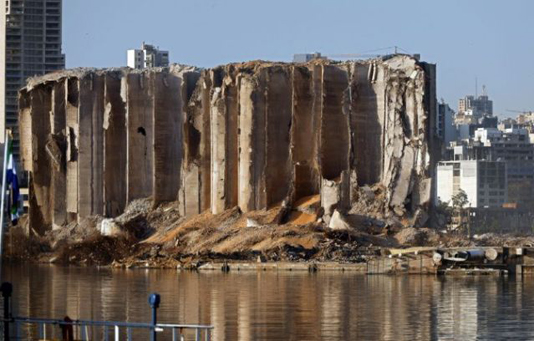BEIRUT, Oct 30, 2020 (BSS/AFP) – A distressed son looks for his father, a
lazy beach day ends in tragedy: Lebanese can now stream short films about
this summer’s devastating port blast — but some say it’s just too soon.
Only months after the August 4 explosion killed more than 200 people and
ravaged large parts of the capital, the Shahid VIP streaming platform says
its aim is to pay tribute to the victims.
But some say they do not want to relive the trauma shown in the “Beirut
6:07” pm series, named after the exact time a huge stash of ammonium nitrate
detonated in a dockside warehouse after it caught fire.
Mazen Fayed, one of the project’s producers and a director of one of the
films making their online premiere this month, said the intention was to
honour those killed.
“We have the responsibility to talk about them and to keep the memory of
these people alive,” he said.
“We didn’t have to look very far. the stories were in front of us, we were
hearing about them every day.”
The explosion, which also injured thousands, was the latest blow to
Lebanese already reeling from an economic crisis that sparked mass anti-
government protests.
In the short film Fayed co-directed with Nadia Tabbara, a young man
desperately runs around the ravaged port, looking for any trace of his father
who works there.
Just a few hours earlier they had argued, we learn, as flashbacks recount
the story of this Shiite family of modest means.
The father, who fought in the 1975-1990 civil war, had despaired to see his
son caught up in sectarian politics and taking part in violent counter-
protests.
– ‘Too soon?’ –
In another film, filmmaker Caroline Labaki imagines what could have
happened if the explosion had been prevented.
It shows Beirut firefighters celebrating a birthday, before rushing out to
put out a fire on the docks.
A news report announces the blaze has been put out before reaching the
massive stockpile of fertiliser, averting disaster.
But in real life, the explosion could not be prevented and 10 firefighters
were among those who lost their lives in Lebanon’s worst peacetime disaster.
Directors worked pro-bono to make the 15 films each 10 minutes long,
produced by Big Picture Studios and Imagic, Fayad said.
The streaming platform covered the production costs including pay for part
of the crews.
But the concept has received mixed reviews online.
Several social media users have questioned its timing, including after the
series’ action-film-like trailer was released.
“I almost had a panic attack just watching this trailer,” one Instagram
user wrote. “You are making us relive the horror we have been trying to
forget.”
Another wrote: “People haven’t been dead three months… people are still
traumatised.”
“You think it’s the time to make a show about our tragedies?”
Another commented: “Way too soon, very disrespectful.”
On November 22, Lebanon’s Independence Day, Saudi-financed satellite
television channel MBC4, which owns Shahid, is to air the films to audiences
across the Arabic-speaking region.
Until then, viewers can watch 11 of the films already available on Shahid
VIP for a fee.
The streaming platform refused to give figures but said the series had been
“well-received in the Levant region, where it quickly became among the most
watched titles”.
– ‘Like group therapy’ –
Among the short films, filmmaker Ingrid Bawab chose to portray a couple at
the beach.
The camera films seawater gently lapping against the beach, before panning
back over the pebbles towards a couple taking in the last rays, then packing
up to drive home. Then disaster strikes.
“It’s about dreams, hopes and plans that got shattered,” Bawab said.
It’s about “what was before and what was ruined. It’s not a film that sears
your eyes, it’s one that breaks your heart.”
The director said it was the most emotionally charged project she had ever
worked on.
“It was like group therapy,” she said. “The crew were people who had
escaped the blast, lost their home or people they knew,” she said.
Streaming giant Netflix too has taken an interest in Lebanon.
This month, the platform said it and the Arab Fund for Arts and Culture had
set up a $500,000 emergency relief fund to support struggling workers in its
film and television industry.
Netflix is also showcasing 34 Lebanese cinematic gems “to give audiences
from around the world a glimpse into the struggles, hopes and dreams of
Lebanon”.



